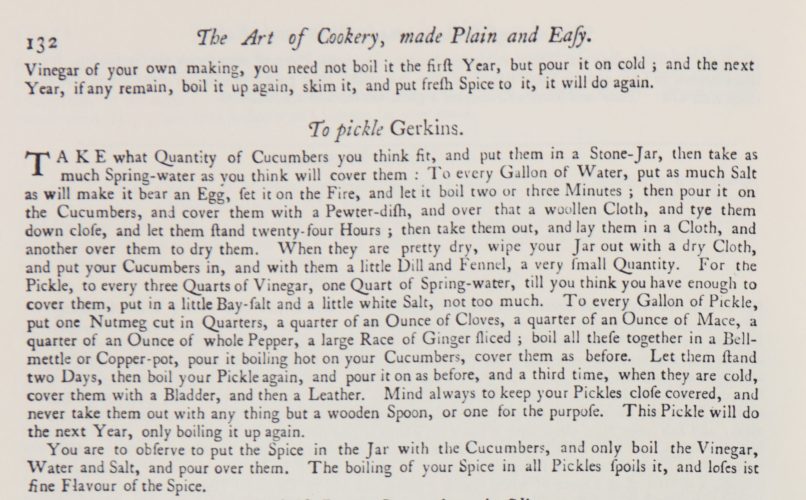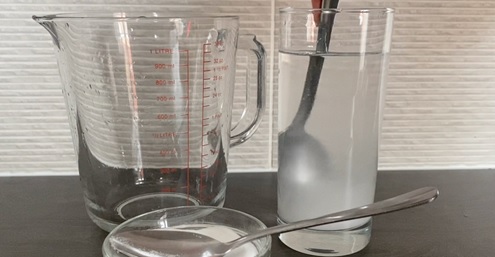Floating an egg with Hannah Glasse
Length: 0:45. Our instructional video shows you how to float an egg in water.
Hannah Glasse (1708-1770), the daughter of Isaac Allgood a Northumbrian landowner, was a cookbook author.
In her 1747 book ‘The Art of Cookery made Plain and Easy’ a number of pickling recipes instructs the reader to place the item to be pickled into a stone jar, cover it in spring water and to every gallon of water, add as much salt as will make it bear an egg.
The item to be pickled is then left to sit in this saltwater solution for 24 hours. This process is also known as brining. It removes excess water from vegetables making them crisper. It also prevents spoilage.
HYPOTHESIS (YOUR THEORY)
In this experiment, you will float an egg in salt water, like Hannah Glasse.
Start by making a hypothesis. A hypothesis is your theory, what you think will happen – how many tablespoons of salt do you think you will need to add to 400ml of water to allow the egg to float?
My hypothesis:
EXPERIMENT EQUIPMENT
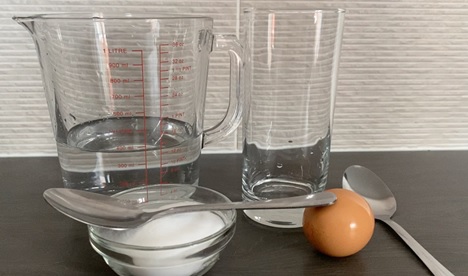
You will need:
• An egg
• A container such as a glass
• 400ml water
• Salt
• Two tablespoons – one for stirring and one for adding salt
EXPERIMENT METHOD
1. Pour 400ml of water into the container.
2. Add your egg.
3. Check, does the egg float?
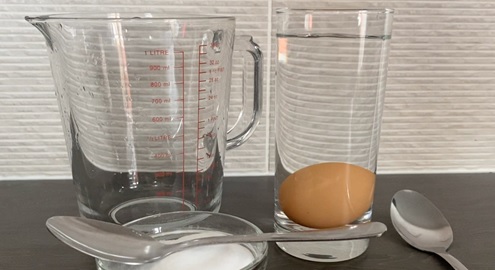
💡 Why does the egg float once
salt is added?
💡 What does density mean?
💡 What is a solution?
4. Add one tablespoon of salt to the water and mix well.
5. Check to see if the egg floats once one tablespoon of salt has been added.
6. If the egg did not float, keep adding salt one tablespoon at a time until it does float. Make sure you check to see if the egg floats after each tablespoon has been added.
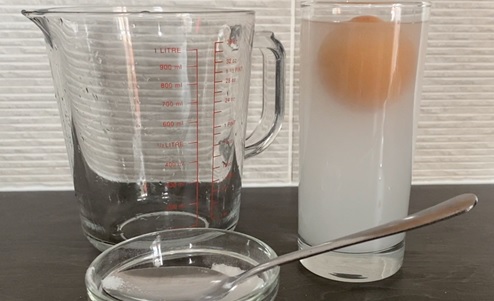
💡 Taste the saltwater solution.
Can you describe how it tastes?
💡 Does all of the salt dissolve into the water or does some of it sink to the bottom of the glass?
💡What happens to the colour of the water once the salt has been added? Is it still see through?
💡 What would happen if you kept adding salt to the water?
EXPERIMENT CONCLUSION
How many tablespoons of salt did you have to add before the egg floated? Was your hypothesis correct?
My conclusion:
SCIENCE BEHIND THE EXPERIMENT
Density is the only thing affecting whether something floats or sinks. If an object has a higher density than the liquid it is in it will sink. If it has a lower density, it will float. The density of an object or substance is its mass divided by its volume. The denser an item is, the heavier it feels for its size.
The egg is denser than the fresh water this causes it to sink. When you start dissolving salt in the water, the density of the water increases. Eventually the water becomes denser than the egg causing the egg to float.
WHAT’S NEXT?
🧪 Try changing the variables of your experiment. What happens if you use a different liquid? What happens if that liquid is carbonated such as sparkling water, or something sugary like a fizzy drink? What happens if you change the temperature of the liquid?
🧪 What happens if you use something other than salt? Repeat the experiment using sugar and flour. How many tablespoons does it take to get the egg to float? Make a new hypothesis, which solution do you think the egg will float in first? You could do this as a race! You can see a video of this at https://youtu.be/ZD5EP3uEx4s
🧪 What happens if you increase the amount of water used? What is the relationship between the amount of salt and water used? Is there a ratio rule that can be created to make sure this experiment works every time?
🧪Repeat the experiment but make sure you don’t fill the container full of water. Once the egg is floating, pour fresh water into the container. Make sure not to stir the mixture once the fresh water has been added. Does the egg float suspended between the saltwater and the fresh water?
🧪 What could you use other than an egg? Try the experiment using different items from your kitchen. You could make a different hypothesis for each item. Can you measure their density?
👩🍳Have a go at making some pickles. You could use some of Hannah Glasse’s recipes for inspiration. Think about what types of foods you can pickle. Can you write a recipe for your pickle?
🎥 Make a video recording or take photographs of your experiments. You could share the results with us to feature on our website.


